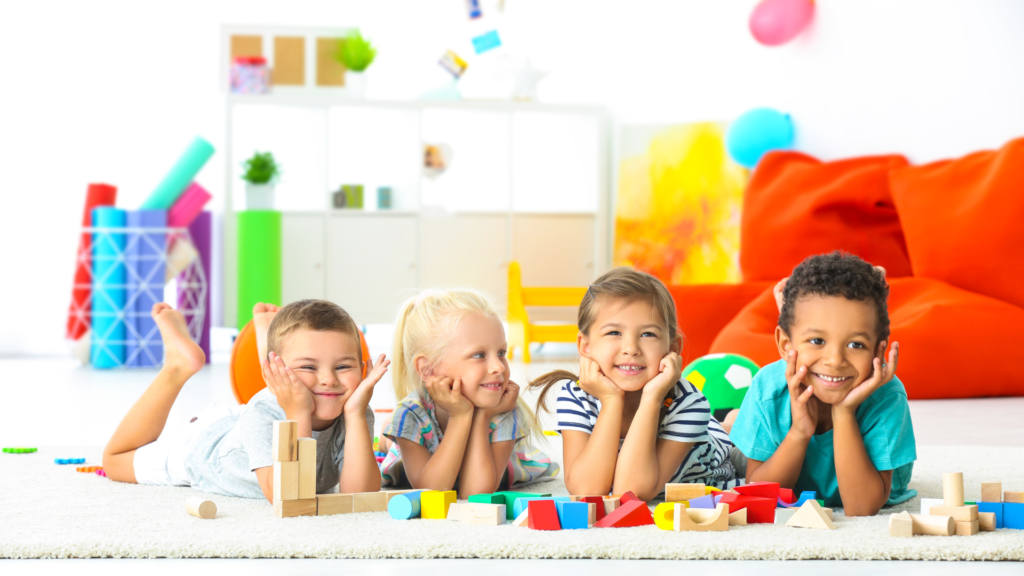Early Childhood Development

Early childhood development is something we know is important. However, what is early childhood development? How does a caregiver know they are fostering an environment for a child that supports their early childhood development? Early childhood development is the early years of a child’s life, when the child is learning about the world. Children take in enormous amounts of information through every interaction they have. These interactions come from interacting with other people, tasting new foods, playing with new games, hearing new sounds, and exploring different textures. A child whose physical, emotional, and cognitive needs are actively met is a child who has the tools that will help them in all stages of life.
So what are some things you can do to help a caregiver promote a child’s early childhood development?
- One of the most important things a caregiver can do is respond to their child’s needs! Children learn through interacting with others. Every time a caregiver responds to their child’s cry, smile, or facial expression, the caregiver is making a connection with the child and providing a safe, nurturing environment. The continued response to a child’s need also helps the child establish a safe and secure attachment with their caregiver, which is essential to their development.
- Introduce your child to new activities! Allow your child to explore and meet their curiosities, both inside and outside. Children are naturally curious, and when they are young, everything is new. Each day they are learning more about the world and how things work. Giving children the opportunity to do this will foster that early childhood development. Activities can include painting, playing with play dough, using shaving cream to do art, using different materials to create a collage or hide in a sandbox, such as beads, feathers, cotton balls, or string, coloring with chalk, and going on a walk.
- Give you child time and space to play, and play with them! Play is central to children’s learning. Like exploring new activities, play gives your child the freedom to explore and make connections on their own. Play also gives children the opportunity to use their imagination. Playing with your child foster the relationship between child and caregiver even more by giving the caregiver an opportunity to see the world through their child’s eyes, and just have fun together.
- Attachment Therapy! Attachment therapy is a form of therapy used at Genesis to help promote the healthy relationship development between a caregiver and child. Attachment therapy includes caregiver and child participating in games, processing past experiences together, and helping a caregiver understand how best to support their child through using eye contact, appropriate physical touch, affective praise, and more.
This is just a start to the many things a caregiver can do to promote a child’s early childhood development!
Written by Claire Moody, LMSW Women’s & Children’s Therapist
Source- Barbre, J. (2021, October 12). Exploring cognitive and social-emotional development of infants and toddlers. Continued Early Childhood Education. Retrieved July 1, 2022, from https://www.continued.com/early-childhood-education/articles/exploring-cognitive-and-social-emotional-23747
